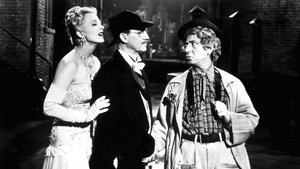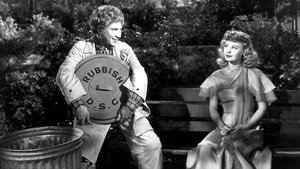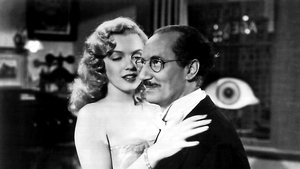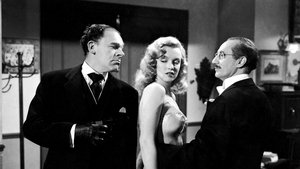Video Sources 0 Views
- Love Happy 1949 Colorized

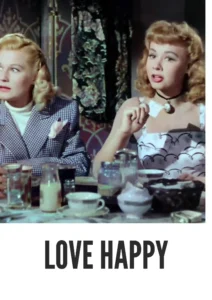
Download Love Happy (1949) Colorized HD | Groucho Marx | Comedy Adventure Classic
Synopsis
Table of Contents
Toggle
Dive into the whimsical world of Love Happy, a charming comedy adventure from 1949, now presented in vibrant color for an enhanced viewing experience. This film, featuring the legendary Groucho Marx, is a delightful blend of humor, mischief, and a touch of romance. The colorization breathes new life into the antics of the Marx Brothers, making this classic film accessible to both long-time fans and new audiences alike. With its unique comedic style and memorable performances, this HD download is a must-have for anyone who appreciates classic cinema.
Love Happy follows the misadventures of Groucho Marx as he navigates a series of comedic escapades in pursuit of love and fortune. The story centers around a group of characters embroiled in a plot involving a stolen diamond. Groucho, along with his brothers Harpo and Chico, finds himself caught in a whirlwind of mistaken identities, slapstick humor, and clever wordplay.As the plot unfolds, the brothers encounter a host of quirky characters, including a beautiful woman who becomes the object of Groucho’s affections. The film culminates in a series of hilarious situations that showcase the Marx Brothers’ signature style of comedy. With its fast-paced dialogue and zany antics, Love Happy offers an entertaining experience that captures the essence of classic American humor.
The film features an ensemble cast that brings this comedic tale to life:
- Groucho Marx as himself
- Harpo Marx as himself
- Chico Marx as himself
- Marilyn Monroe as The Girl
- Jesse White as The Detective
Love Happy is categorized as a comedy adventure, infused with elements of musical and slapstick humor that are characteristic of the Marx Brothers’ films. Its lighthearted narrative and engaging performances make it an enjoyable watch for audiences of all ages.
Released in 1949, Love Happy marks one of the last films featuring the iconic Marx Brothers together. It showcases their unique brand of comedy during a time when Hollywood was transitioning into new styles and genres. While it may not be as celebrated as their earlier works, such as Duck Soup or A Night at the Opera, it remains an important part of their legacy and offers insight into their enduring appeal.
This colorized version of Love Happy has been meticulously restored using advanced digital techniques that enhance its visual appeal while preserving the film’s original charm. The colorization process involved analyzing the original black-and-white footage to assign appropriate colors to each scene. This effort not only revitalizes the film but also introduces it to younger generations who may be more inclined to engage with colorful visuals. While opinions on colorizing classic films vary, this version aims to breathe new life into Love Happy, ensuring its place in cinematic history.
- : Charles Reisner
- : George S. Kaufman, Al Boasberg
- : Charles Van Enger
- : William H. Ziegler
- : Paramount Pictures
- : 83 minutes
- : MP4
- : HD (1080p)
- : Compatible with most devices including smartphones, tablets, computers, and smart TVs.
While Love Happy (1949) may not have received the same level of acclaim as earlier Marx Brothers films, it is appreciated for its humor and nostalgic value. Critics note that it captures the essence of what made the Marx Brothers famous—witty dialogue, physical comedy, and an irreverent approach to storytelling. Fans often regard it as a fitting farewell to one of comedy’s most beloved ensembles.
- : What is Love Happy about?
- A: Love Happy is a comedy adventure featuring Groucho Marx and his brothers as they navigate hilarious situations involving a stolen diamond.
- : Is Love Happy (1949) considered a classic?
- A: While not as famous as earlier works by the Marx Brothers, it remains an enjoyable film that showcases their unique comedic style.
- : Is this version of Love Happy colorized?
- A: Yes, this version has been professionally colorized to enhance the viewing experience.
- : What makes Love Happy interesting for fans?
- A: It features iconic performances by Groucho and his brothers while offering a glimpse into their later work together.
- : What is the download format?
- A: The download format is MP4, which is compatible with most devices.
- : What resolution is the download?
- A: The resolution is HD (1080p), providing a high-quality viewing experience.
Watch Love Happy Today!
